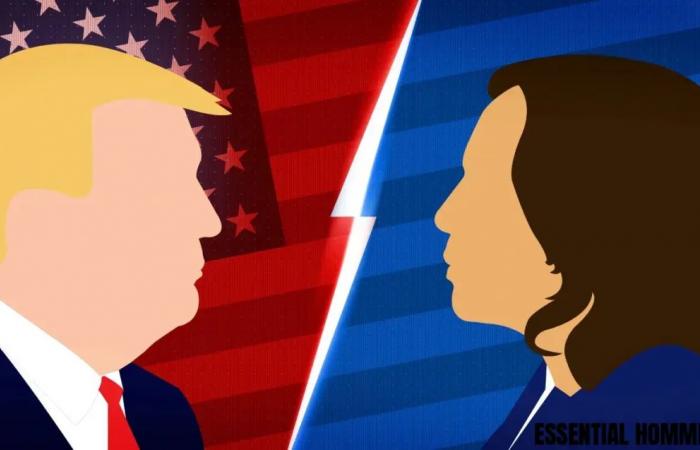The rise of electoral betting markets has disrupted political life, and Donald Trump currently finds himself at the center of this phenomenon. These platforms have transformed political speculation into a dynamic and interactive experience, allowing individuals to bet on various electoral outcomes.
Online gamers have found a new playground to put their analytical skills and interest in political affairs to good use. Election betting markets such as PredictIt, Kalshi and Polymarket have grown in popularity, allowing people to buy and trade stocks based on the likelihood of political events occurring. These markets are not limited to presidential races, but also speculate on policy changes, congressional elections and important government appointments.
Donald Trump's influence on these markets is considerable. As a high-profile figure with a substantial impact on U.S. politics, his potential candidacy and activities are attracting keen interest among traders. Participants closely monitor his movements and statements, and adjust their positions as the situation evolves. This constant ebb and flow creates a dynamic market reflecting real-time sentiments on its political trajectory.
La sophistication technological of these platforms attracts technology enthusiasts who appreciate the fusion between complex data analysis and policy forecasting. Advanced algorithms and real-time data feeds allow users to stay informed and make quick decisions. For many, this blend of technology and politics offers a more attractive way to participate than traditional methods, such as following the media or taking surveys.
Market operators emphasize the role of election betting markets in aggregating diverse opinions and sources of information. By aggregating information, these markets can sometimes predict results more accurately than traditional polls. The real-time nature of transactions allows for immediate feedback on how events are influencing public perception, providing insights that cannot be captured through other means.
However, the rise of election betting markets is not without controversy. Critics raise ethical questions regarding the commodification of democratic processes and the ability of markets to influence voter behavior. Others fear that these platforms will become echo chambers, reinforcing biases instead of providing objective forecasts. Additionally, the regulatory environment remains complex, with debates over legality and appropriate oversight.
Regulatory bodies such as the Commodity Futures Trading Commission, an independent U.S. federal agency responsible for regulating trading exchanges, have been faced with the question of how to classify and regulate these markets. Some platforms have faced legal issues that have impacted their operations and accessibility. Despite these obstacles, demand continues to grow, driven by users eager to engage with politics in an interactive way.
Donald Trump's weight in these markets reflects his sustained presence in the political sphere. Speculation over his potential policies, ministerial appointments and impact on the future is fueling market activity. Traders are actively betting on who could be appointed to key positions if he returns to power, and figures such as Bobby Jindal or Robert F. Kennedy Jr. are prancing at the top of the bets, suggesting they have a high probability to be selected in the next Trump administration.
The social dynamics of election betting markets are remarkable. Participants form communities to share their analyses, debate results and discuss strategies. These interactions add a social element, boosting engagement for tech-savvy people who like to solve problems collaboratively.
From a financial perspective, some view election betting markets as investment opportunities. The potential for monetary gain adds excitement, but also risk. As with any speculation, there is a risk of significant losses and participants should navigate with caution.
Increasing accessibility, facilitated by technological advances and user-friendly interfaces, has lowered the barriers to entry. Mobile apps and online platforms make it easy to participate from anywhere. This convenience contributes to the growing popularity of these games among technology enthusiasts.
As the next election cycle approaches, the role of election betting markets is expected to increase. Donald Trump remaining a key figure, traders will follow his actions closely. The interplay between developments and market reactions will provide insight into how public sentiment and speculation converge in this digital market.






